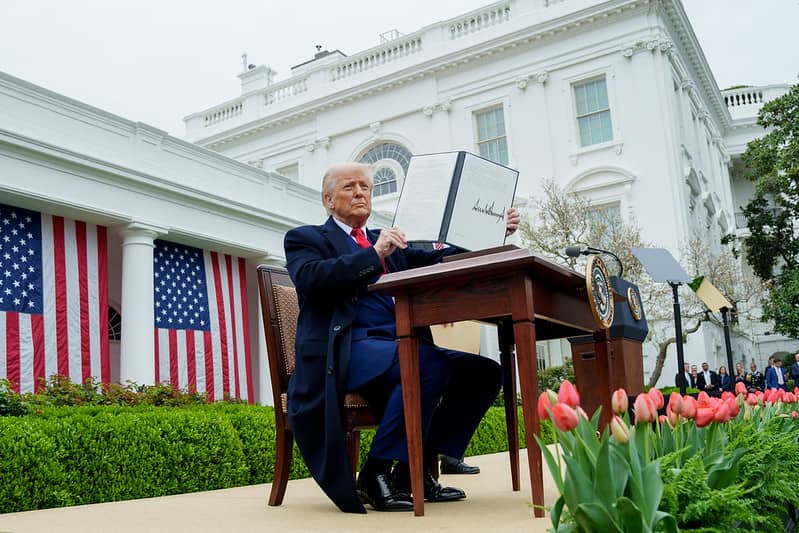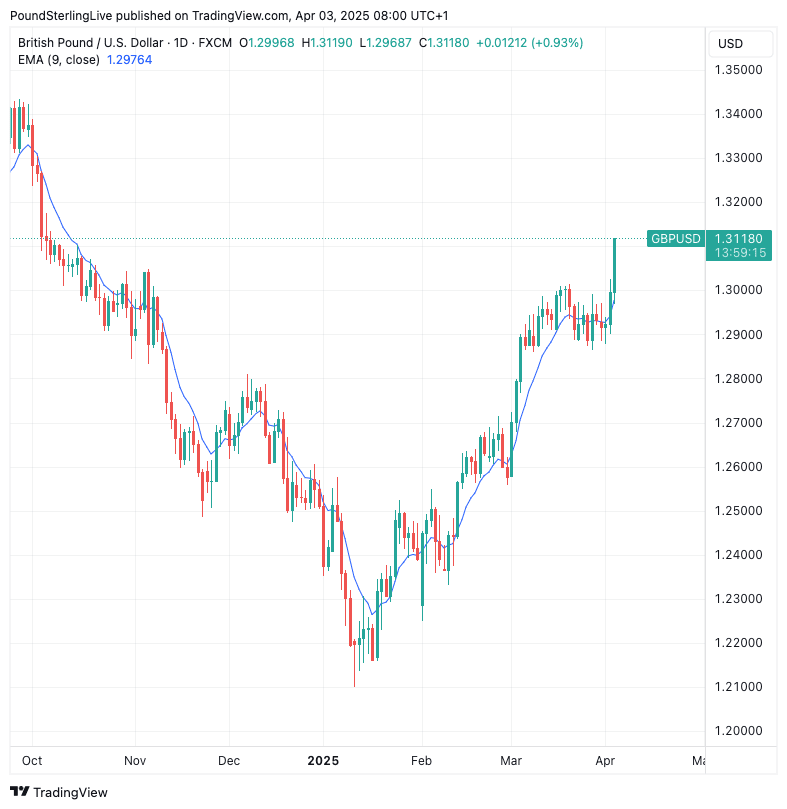
Above: Trump at the announcement in the Rose Garden of the White House. Image source: White House Press Office.
Why the Dollar is the big loser of Trump's tariff announcements.
It's 'Liberation Day' for the Pound-to-Dollar exchange rate as it powers to fresh highs, helped by the U.S. President's massive tax on U.S. consumers.
The average tariff rate will rise to over 20% from just 2.5% before Trump took office, the highest level since the early 20th century.
The impacts on the U.S. economy are significant as a tariff is paid for by consumers and businesses, not by foreign countries seeking "to rip off" America, as Trump has so often alleged.
The implication is that the economy faces a significant shock in the form of higher prices.
"The blowback of US tariffs onto the US domestic economy leaves the dollar naked. US rates continue to be marked lower, and not until we get some surprisingly good news from the US on tax cuts or deregulation may the dollar start to find some support," says Chris Turner, head of FX research at ING.
"The sharp sell-off in the US equity market and the weakness of the US dollar, which somewhat counterintuitively fell by around 1% against major peers, can be seen as a market’s vote of no confidence in Trump’s trade policies. Aside from hurting its trading partners, the tariffs are set to push up prices and dampen economic activity in the U.S.," says Roman Ziruk, Senior Market Analyst at Ebury.
The Pound-to-Dollar exchange rate has rallied to 1.3117 in Thursday morning trade, putting it at the highest level since October 2024 and bolstering a multi-week uptrend that is sure to take in fresh highs in the coming days and weeks.
One of the foreign exchange market's most noted analysts, Deutsche Bank's George Saravelos, sent out an email to clients on Thursday morning, subjected: "Why is the Dollar Collapsing?"
He gives three explanations:
1) "Because China is so far holding the line in USD/CNY despite massive tariffs."
By holding the line, Chinese authorities must be dumping significant amounts of dollars into the market to prop up the yuan. Other dollar-based exchange rates must, as a result, absorb this supply of USD.
2) "Because the US administration’s approach to calculating the tariffs raises serious concerns about policy credibility, undermining the USD."
Uncertainty is a currency's greatest enemy.
3) "Because the U.S. Treasury Secretary’s communication to the market right after the announcement emphasised fiscal tightening, while fiscal support from the rest of the world looks likely, further undermining relative US growth expectations."
Fiscal tightening is disinflationary, which limits the potential upside in domestic inflation and opens the door to further Federal Reserve rate cuts, which are, by nature, a headwind to the Dollar.

